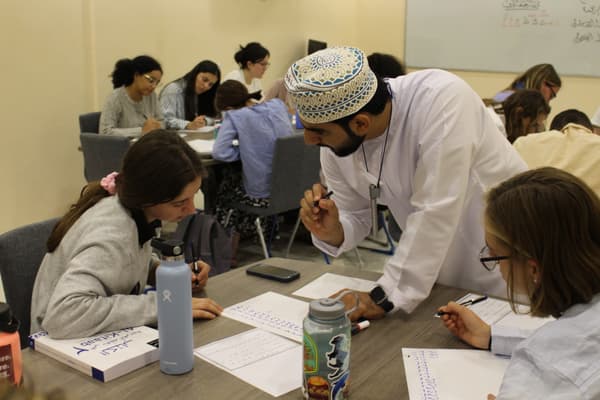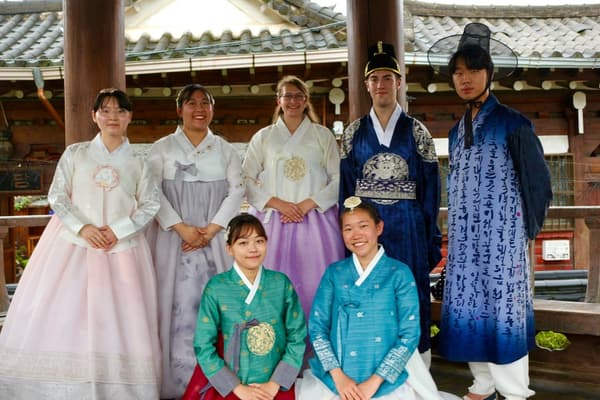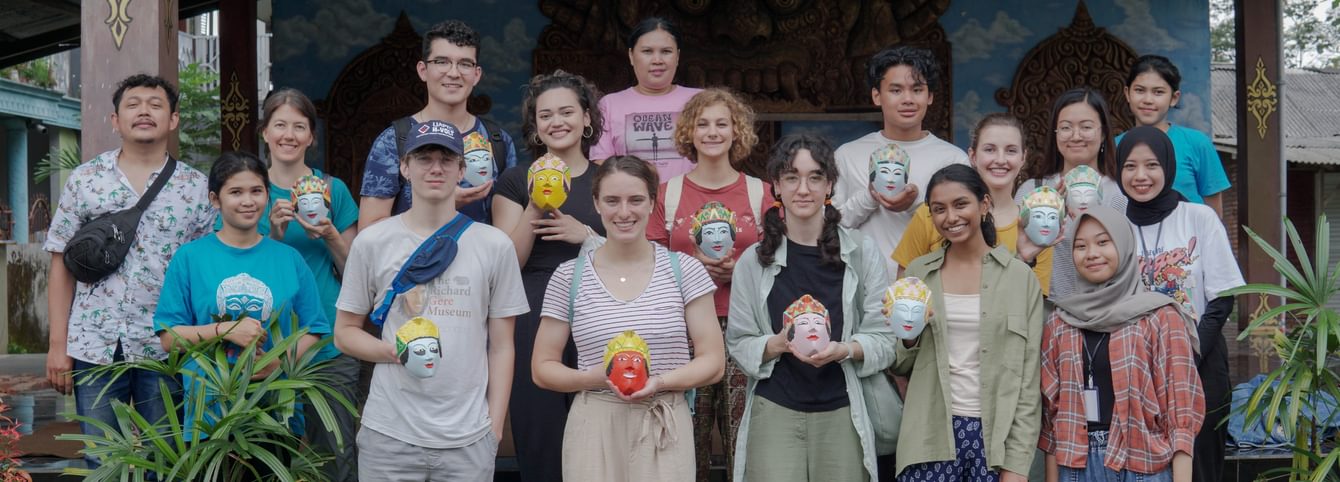Program Overview
The CLS Award
The Critical Language Scholarship Program is sponsored by the U.S. Department of State, with funding provided by the U.S. Government. Recipients of the scholarship receive the opportunity to participate in an overseas group-based study abroad program designed to strengthen proficiency in a language critical to the United States’ national security, economic prosperity, and engagement with the world.
Most aspects of the CLS Program are arranged and paid for directly through the program itself, which means that scholars do not need to make those arrangements. This includes participants’ travel to and from the program site abroad, language instruction and cultural programming, room and board, and language learning materials such as textbooks. Participants receive a modest stipend designed to offset some of the other costs of participating in the program, such as daily transportation to and from class in the host city. Participants who successfully complete the requirements of the CLS Program have the option to receive academic credit issued through Bryn Mawr College, as well as an ACTFL Oral Proficiency Interview score to certify their language skills and non-competitive eligibility for U.S. federal government employment opportunities. Alumni of the CLS Program also benefit from the opportunity to join the U.S. Department of State’s International Exchange Alumni network.
Academics
CLS is first and foremost an academic program. Each CLS institute is hosted by an educational institution in a location where the CLS language is spoken. Instructors at these institutions are trained in teaching the CLS language to foreign students. In the span of one summer, institutes typically cover the amount of material that would be covered in an academic year at a U.S. college or university. Participants have approximately fifteen hours of language class per week and about two hours of homework each night.

CLS Arabic students in class in Nizwa, Oman.
Language Policy
The more often a person speaks a foreign language, the faster their language skills improve. For this reason, participants are required to follow a CLS language policy during the program. The language policy requires participants to use the CLS language at all times in certain settings. These locations may vary by site but will likely include:
- In CLS classes
- When speaking with local instructors, staff, and administrators
- On the grounds of the CLS institute, in all facilities (including classrooms, hallways, and all common areas)
- On group excursions and trips
- With Language Partner(s), host family, and/or roommate(s)
While participants are required to speak the CLS language in these circumstances, they should make an effort to use the language at all times. To learn more, please see the Language Learning section of this guide.
Group-Based Program
Every CLS participant joins a cohort ranging from 5 to 30 students, depending on the CLS language and location. Participants come from all regions of the United States and have diverse backgrounds and identities. CLS is a good opportunity for students to expand their network of people across the United States who share an interest in their CLS language. It’s also a great way to learn about the diversity of the United States as participants get to know other Americans with perspectives and backgrounds different from their own.
During the CLS Program, all classes and activities are conducted in groups, and everyone shares the same general schedule. Most aspects of the program are designed for language learning in a group setting. Participants should be aware that they may have less flexibility in their schedule during CLS than they are used to, and CLS activities and topics may not always align directly with a participant’s field of study or personal interests.
The CLS Program is a cooperative experience, and it is important that all cohort members support one another’s learning throughout the program. Positive and respectful group dynamics help everyone in the cohort to focus on advancing their language skills and to make the most of their cultural immersion experience. Participants should remember that they will likely cross paths with members of their cohort after the program in their personal, academic, or professional endeavors, and a participant’s CLS cohort can serve as a great network for their career.
Cultural Engagement
While abroad, CLS participants gain valuable context about their host community through CLS-arranged cultural activities and excursions, as well as by spending time with members of the host community. Cultural activities are designed provide insight into the host community’s history and culture and allow participants to put their language skills into action outside of the classroom. CLS-arranged cultural activities are conducted in the CLS language, even for groups that include absolute beginners. Although this can be challenging, CLS Program staff help participants prepare to make the most of these opportunities. In addition to CLS-arranged cultural activities, participants have the opportunity to engage in the local culture by spending time with their Language Partners, host family or roommate(s), and other members of the host community, as well as exploring the community on their own or together with CLS peers.
Language Partners
Language Partners are local students or other community members who are selected to work closely with CLS participants on a weekly basis to practice speaking the CLS language in a less formal setting. Language Partners support participants’ studies and enhance their conversational skills. Language Partners also play an important role in acquainting students with their host community’s culture by providing insights into the host city, as well as traditions and daily life. Language Partners are required to speak with participants in the CLS language and are prohibited from speaking in English per the CLS language policy.
"My language partner is very knowledgeable and open-minded. We speak about aspects of the Tanzanian culture, history, society and places to visit. I also like the fact that he is humble enough to research when he does not have direct answers to my questions. I always learn new words and/or new sentences during our meetings." 2022 Arusha participant

An Urdu participant shares conversation with his Language Partner in Lucknow, India.
Daily Life
All participants are required to live in CLS-provided housing for the duration of the program. Participants typically live either with a host family or in an apartment or dorm with roommates from the CLS Program or host institute. Living conditions in each CLS host community differ, but students should generally expect to have less privacy than they may be used to in the U.S. and to need to adapt to the local environment, including differing levels of accessibility to air conditioning, hot water, and Wi-Fi. Most participants need to take public transportation each day from their housing to the host institution.
Some meals during the CLS Program are provided and typically reflect the ingredients and culinary practices of each host community. Funds are included in each participant’s stipend to offset the cost of meals not provided directly. More information about dietary concerns can be found in the Planning for Your Health and Safety section of this resource.
Other Aspects
More information about other elements of the CLS Program can be found in the Before You Go and While Abroad sections of this resource.

CLS students and Language Partners wearing traditional Korean clothing.


